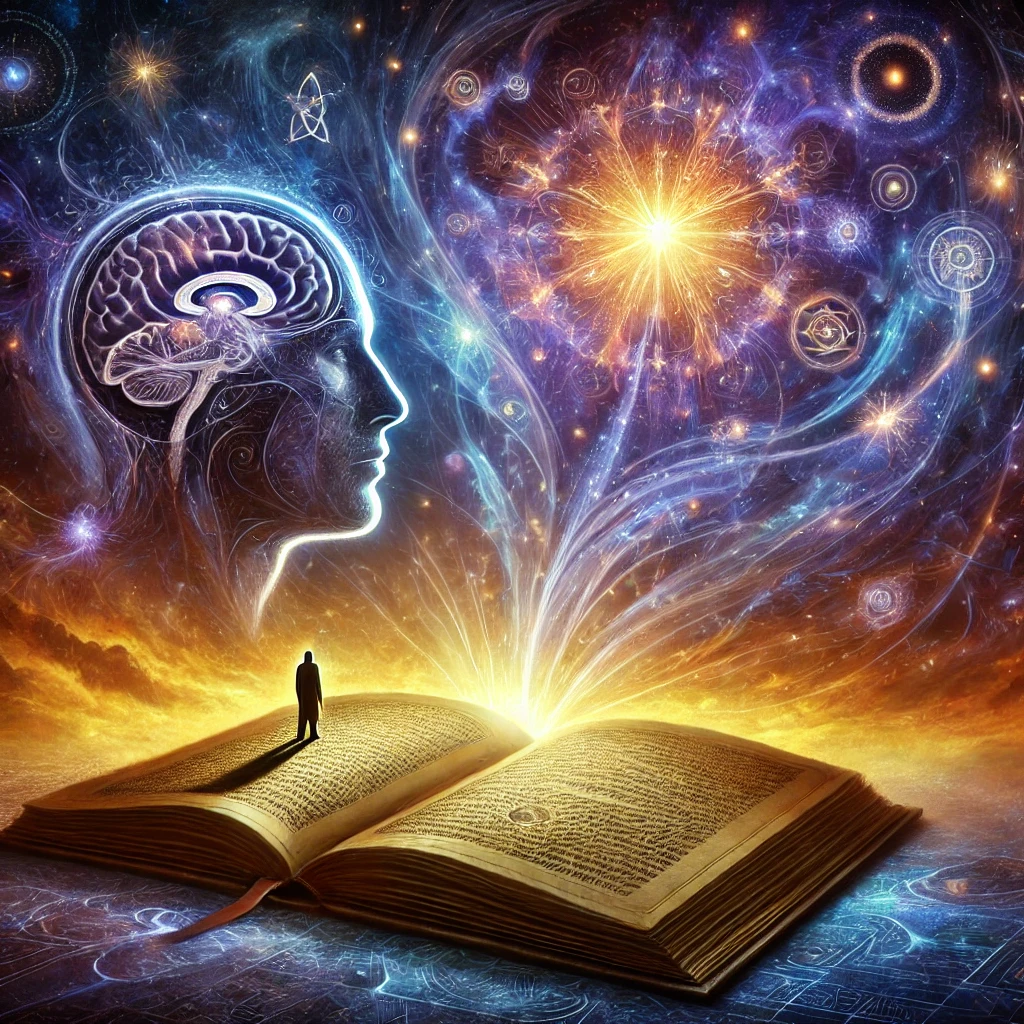
Have you ever felt like you were running on autopilot—repeating the same habits, reactions, or thought patterns without knowing why? Have you ever woken up from a dream that felt like a cryptic puzzle, filled with strange symbols and emotions? These are glimpses into the unconscious mind, the deep, hidden realm that influences our choices, emotions, and perceptions without us even realizing it.
In this blog, we will explore The Unconscious Chronicles, a narrative shaped by our deepest fears, desires, and past experiences. Like an ancient book filled with invisible scripts, our unconscious mind dictates much of our behavior, often without our awareness. By decoding these hidden scripts, we can unlock profound self-awareness, break free from limiting patterns, and consciously reshape our lives.
The Unconscious Mind: The Hidden Director of Our Lives

Imagine an iceberg floating in the ocean. The small portion above water represents the conscious mind—the part we actively use for logical thinking, decision-making, and problem-solving. Beneath the surface, however, lies a massive, unseen structure: the unconscious mind, a vast storage house of memories, instincts, emotions, and deeply ingrained beliefs.
This concept was famously introduced by Sigmund Freud, who suggested that much of human behavior is driven by unconscious motives and unresolved conflicts. Carl Jung, another pioneer in psychology, expanded this idea with his theory of the collective unconscious, suggesting that humanity shares a deep reservoir of inherited symbols and archetypes that influence our perceptions and behavior.
While we may believe we are in control of our decisions, much of our daily life is shaped by hidden psychological forces. These include:
- Automatic Behaviors & Habits – Many of our daily actions, such as driving a familiar route, responding to stress, or even the way we form relationships, are driven by unconscious programming.
- Emotional Triggers – Unresolved past experiences can cause strong emotional reactions in the present. A simple comment or situation might evoke anger, fear, or sadness without us understanding why.
- Symbolism in Dreams – Dreams serve as a gateway to the unconscious, revealing our fears, desires, and unprocessed emotions through symbolic imagery.
- Repressed Memories & Desires – The unconscious stores painful or socially unacceptable emotions that we may have suppressed to protect ourselves from distress.
While these unconscious mechanisms serve to protect us, they can also trap us in limiting cycles, preventing growth and self-actualization. To break free, we must decode the scripts that have been written in our unconscious mind.
The Hidden Scripts: How Our Past Writes Our Future
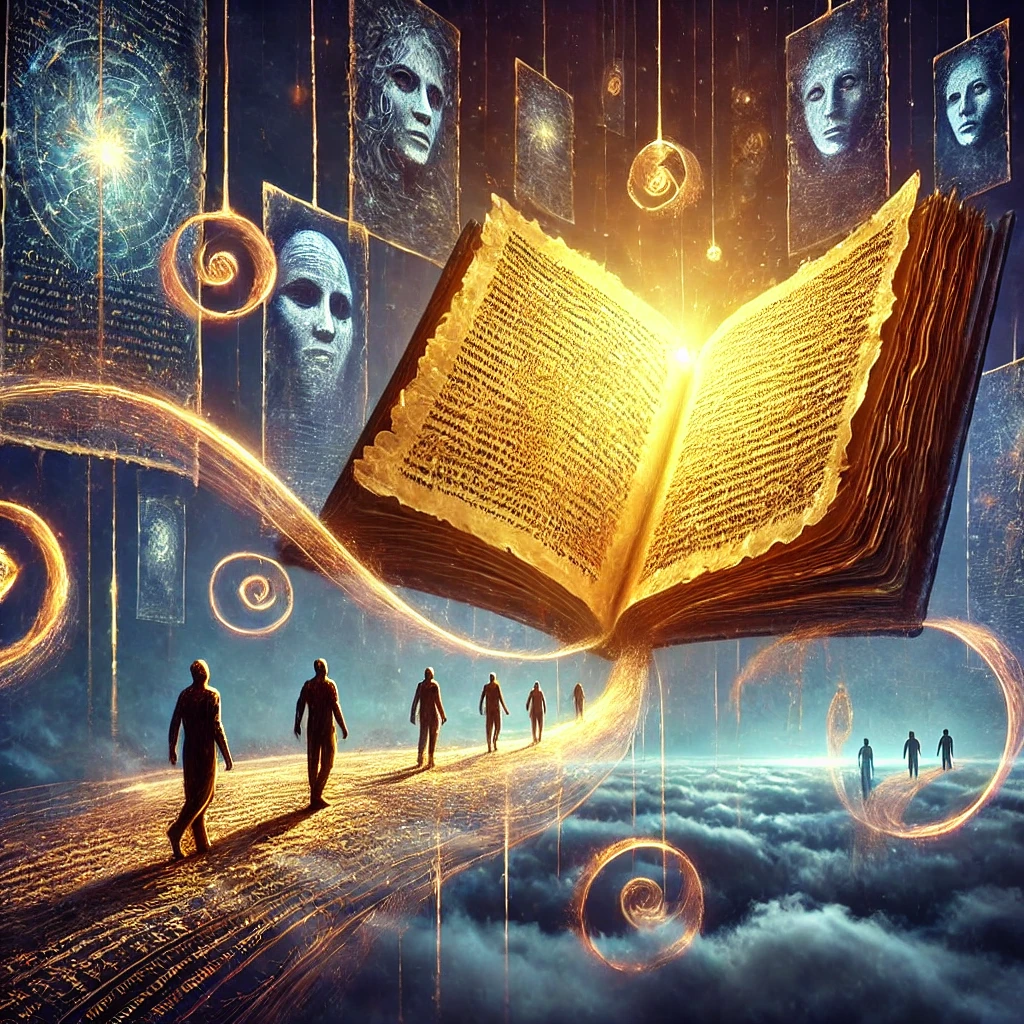
Throughout life, we accumulate experiences that shape the way we think, feel, and behave. These experiences form “scripts”—deeply ingrained mental patterns that influence our actions. Some of these scripts serve us well, fostering confidence and resilience. Others, however, act as invisible barriers that limit our potential.
Where Do These Scripts Come From?
- Early Childhood Conditioning – Our upbringing, parental expectations, and early experiences create a blueprint for how we view ourselves and the world. If a child grows up in an environment where love is conditional, they may develop a script that says, “I must achieve to be worthy.”
- Traumatic Events & Emotional Wounds – Negative or painful experiences can leave emotional imprints that shape our future reactions. For example, someone who was betrayed in a past relationship might unconsciously develop trust issues, even in safe relationships.
- Cultural & Societal Influences – Societal norms and expectations play a significant role in shaping our unconscious beliefs about gender roles, success, love, and happiness.
- Family & Generational Beliefs – Unconscious scripts can be passed down from generation to generation. Beliefs about money, relationships, and personal worth are often inherited from family members.
- Personal Narratives & Self-Talk – The way we talk to ourselves shapes our unconscious identity. If we constantly repeat negative affirmations like, “I’m not good enough,” it becomes an ingrained belief.
Many of us unknowingly operate from these scripts, reliving the same patterns in relationships, careers, and personal struggles. But the good news is—we can change the script.
Decoding the Unconscious: How to Uncover Hidden Patterns
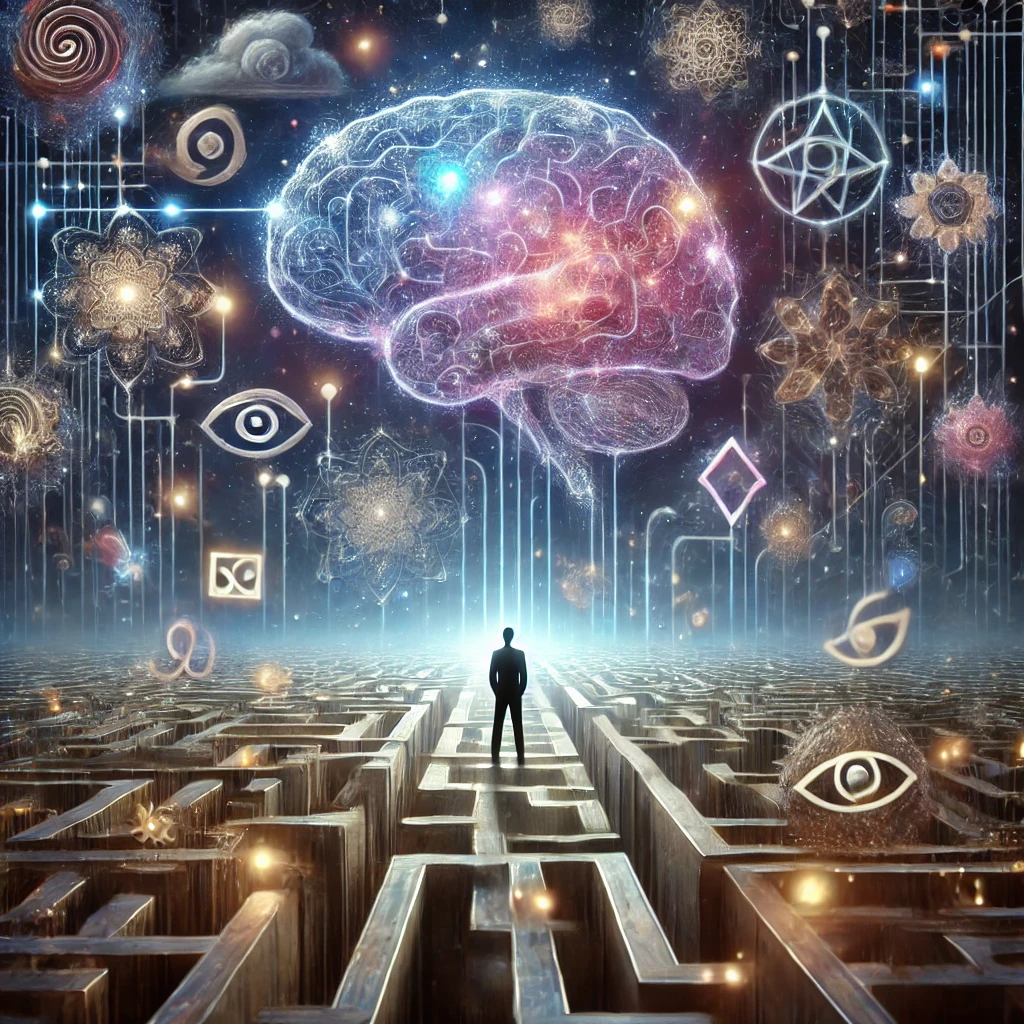
To break free from limiting unconscious scripts, we must first identify them. This requires self-reflection, deep inner work, and sometimes professional guidance. Below are powerful ways to start decoding the unconscious:
1. Pay Attention to Dreams & Symbols

Dreams are direct messages from the unconscious mind. Keeping a dream journal and analyzing recurring symbols or emotions can provide clues about hidden fears or desires. Common dream symbols, like water (emotions) or flying (freedom), can offer insight into unconscious struggles.
2. Practice Mindfulness & Meditation
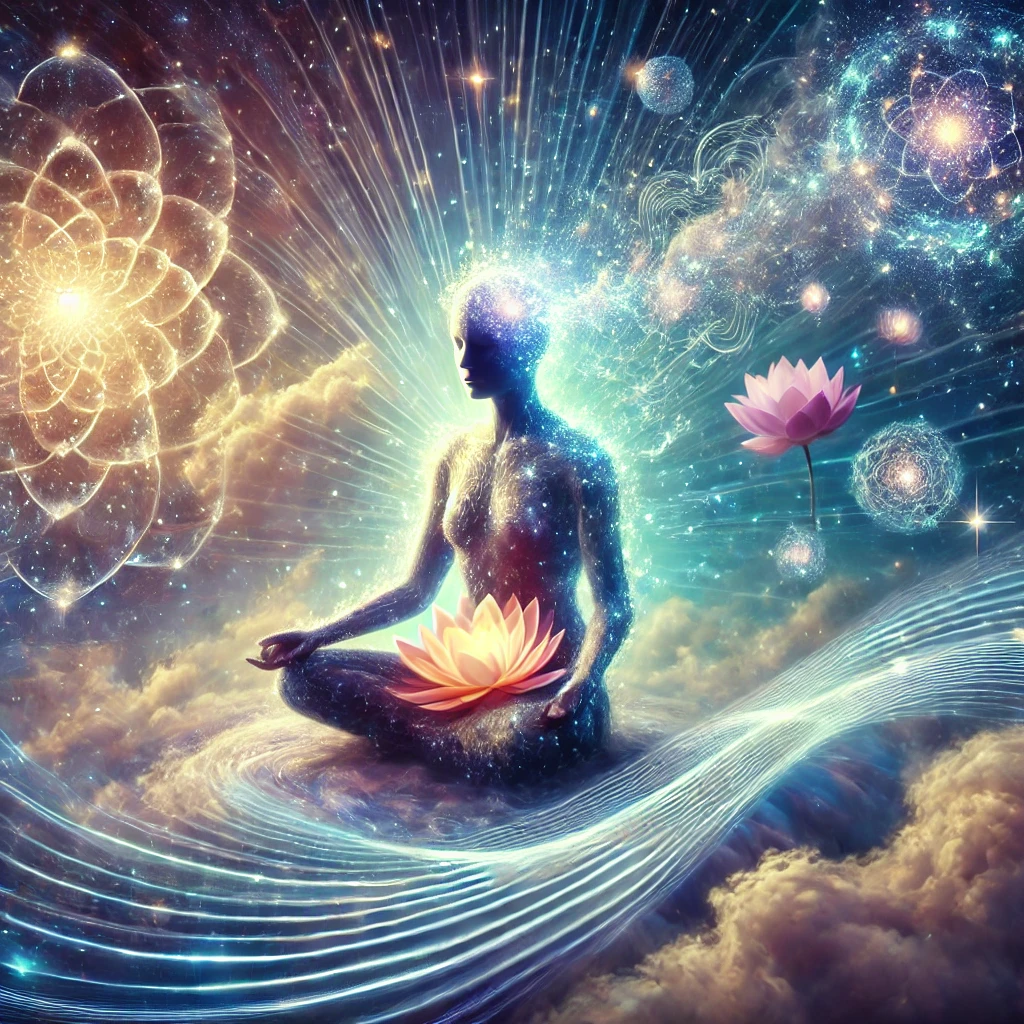
Mindfulness helps bring unconscious behaviors into awareness. By observing our thoughts without judgment, we can begin to recognize patterns and triggers. Meditation can also help us access the unconscious, bringing clarity to long-buried emotions.
3. Identify Emotional Triggers & Patterns

Notice situations that evoke strong emotional reactions. Ask yourself:
- Why do I react this way?
- What past experience does this remind me of?
- Is this response serving me, or am I stuck in an old script?
Recognizing emotional triggers can reveal deep-seated fears and beliefs.
4. Challenge & Rewrite Limiting Beliefs
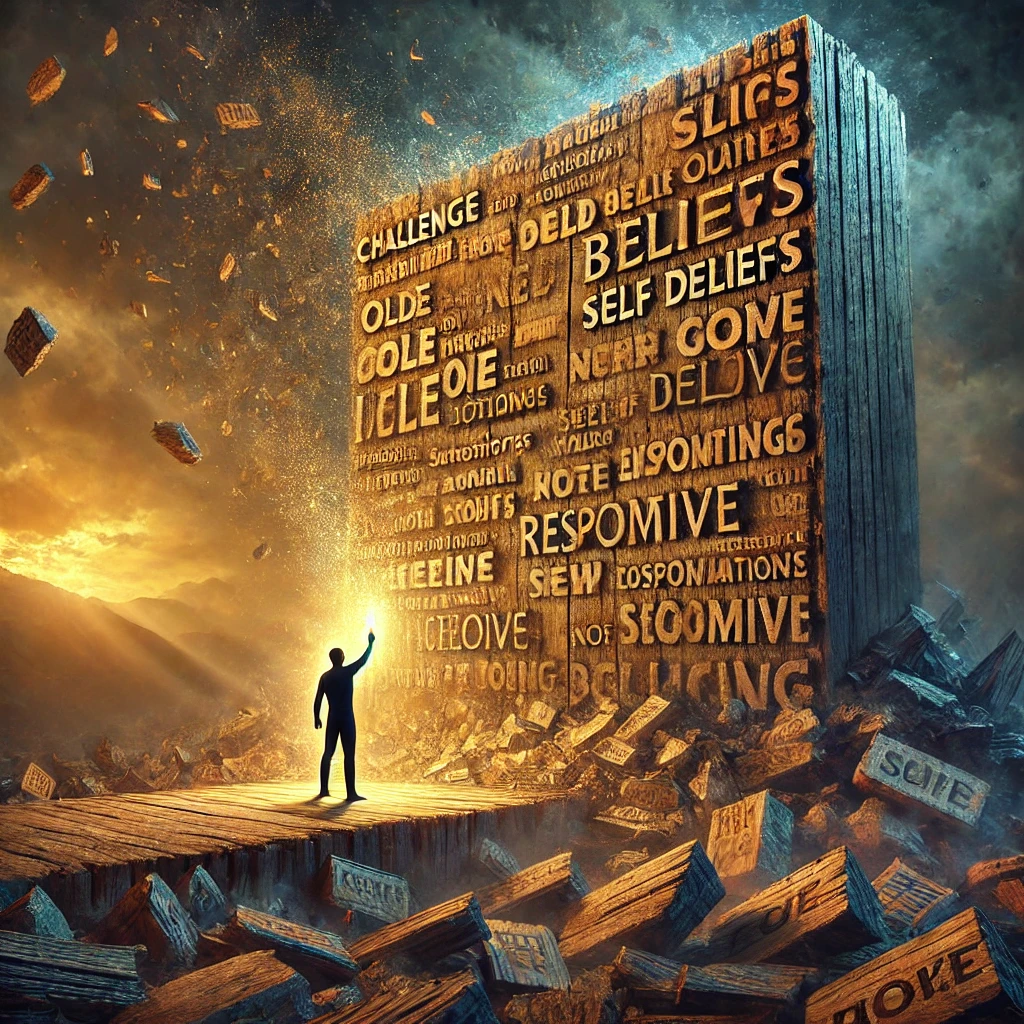
Identify negative beliefs that hold you back. Write them down, then question their validity. For example:
- Is this belief absolutely true?
- Who taught me this?
- What would be a more empowering belief?
Replacing limiting beliefs with positive affirmations can rewire the unconscious over time.
5. Inner Dialogue & Active Imagination

Carl Jung developed active imagination, a technique where you consciously engage in dialogue with different aspects of your unconscious mind. This can be done through journaling, visualization, or even guided meditation. Speaking to your “inner child” or “shadow self” can reveal unresolved emotions.
6. Seek Therapy or Hypnosis

Therapies such as Jungian analysis, cognitive behavioral therapy (CBT), hypnotherapy, and shadow work can help uncover unconscious patterns and bring them into conscious awareness.
Rewriting Your Story: Becoming the Author of Your Mind

Once we become aware of our hidden scripts, we gain the power to rewrite them. Instead of living reactively, we can consciously shape our thoughts, beliefs, and behaviors in ways that align with our authentic selves.
How to Rewrite Your Mental Scripts
✅ Reframe Negative Narratives – Replace limiting self-talk with empowering affirmations. Instead of “I’m not good enough,” try “I am constantly growing and learning.”
✅ Use Visualization Techniques – Imagine yourself breaking free from old patterns and living the life you desire.
✅ Take Small, Conscious Actions – New habits and behaviors create new neural pathways, gradually overriding unconscious programming.
✅ Embrace Personal Growth – Engage in therapy, journaling, creative expression, or other self-development practices to reshape your mindset.
Final Thoughts: Embracing the Mystery of the Mind
The unconscious mind is not our enemy—it is a wellspring of wisdom waiting to be understood. By decoding its hidden scripts, we can break free from self-imposed limitations, heal from past wounds, and live with greater intention and purpose.
The journey into the unconscious is not always easy, but it is deeply transformative. The more we explore, the more we uncover who we truly are—beyond the conditioning, beyond the fears, beyond the past.
So, are you ready to rewrite your unconscious chronicles and step into a new, empowered version of yourself? Your mind holds the key—unlock it. 🔑✨







Leave a Reply